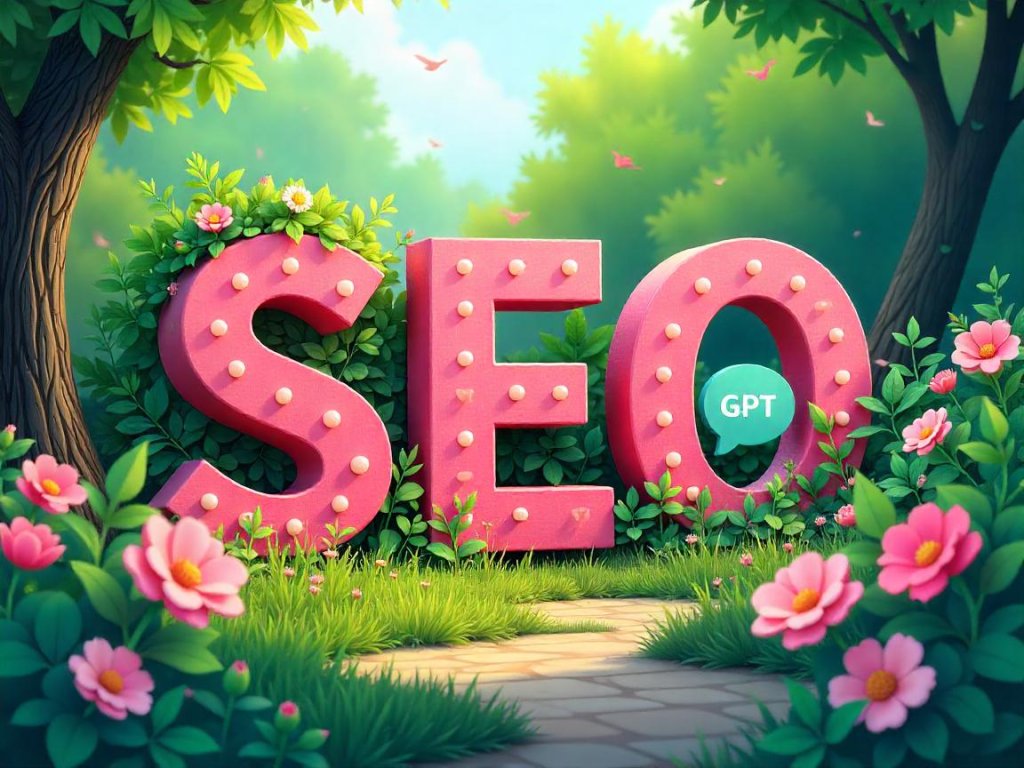
A Paradigm Shift in Digital Marketing
Introduction: The Evolving Landscape of SEO
Ah, the world of digital marketing—each twist and turn mirrors the unpredictability of a roller coaster ride. For years, marketers have played a diligent game in the SEO arena: the goal was crystal clear, aiming to snag those coveted clicks. The focus was razor-sharp—enhancing keyword strategies, perfecting page load speeds, and ensuring mobile responsiveness. All these moves aimed at climbing the ladder of search engine rankings and drawing in traffic like a moth to a flame.
Yet, as with any riveting plot twist, the advent of large language models (LLMs) like ChatGPT has turned the tables. Suddenly, the narrative shifts; consumers are leaning into AI tools more than ever to assist in shopping, comparing brands, and making those all-important purchasing decisions. This shift is reshaping marketing tactics from merely winning clicks to winning mentions—flipping the SEO playbook on its head.
The Rise of AI-Driven Shopping
The integration of generative AI into our daily lives isn’t just a fleeting trend—it’s a seismic shift in consumer behavior. Recent studies have noted a significant decline in traditional web browsing. Specifically, there’s been a marked drop in browsing on popular platforms like Safari. Instead, users are increasingly turning to AI systems for information queries. While some tech giants might downplay this shift, the data speaks volumes. ChatGPT is now steering users towards e-commerce platforms, particularly Amazon.
Between late October and mid-January, a striking statistic emerged: 9.13% of all traffic referred by ChatGPT landed squarely on Amazon.com. E-commerce sites received 12.65% of the total traffic ChatGPT directed. Although e-commerce pales in comparison to news platforms (21.42%) and academic domains (17.81%), the growing interaction with AI assistants is undeniably changing the game for brand discovery and consumer engagement.
Traditional SEO vs. AI-Optimized SEO
If traditional SEO is the seasoned heavyweight champion in the ring, then AI-optimized SEO is the fresh, agile contender ready to shake things up. Historically, SEO strategies focused on ensuring visibility in search engine results through:
- Keyword optimization: honing in on exact phrases users might type into Google.
- Technical SEO: prioritizing fast load times, mobile optimization, and ensuring indexability.
- Content structure: deftly using headers, meta descriptions, and alt text.
However, in a landscape dominated by LLMs, the former game plan has transformed. LLMs don’t merely retrieve links—they summarize, contextualize, and interpret information. Rather than presenting users with the top ten results, tools like ChatGPT weave together the “best” answers from an expansive array of sources.
This revelation flips the script. To ensure visibility in AI-generated responses, brands must cultivate a reputation that stirs conversations—not just a website optimized for algorithmic crawlers.
Why Mentions Are the New Metric
In the bygone days of traditional SEO, clicks were synonymous with visibility. Fast forward to today’s AI-driven dynamics, where mentions stand tall as the new gauge of relevance.
Think about it: large language models glean their understanding from content scattered across the web. The more frequently a brand is mentioned in forums, news articles, blog posts, or customer reviews, the higher the likelihood it’ll be included in the pool of answers generated by AI.
Yaron Litwin, CMO of a parental control app, succinctly encapsulates this shift, stating, “Until recently, digital marketing was all about winning the clicks. With the rise of LLMs, it is now all about winning the mentions.” The takeaway here is simple but profound: brands must become integral to the conversation—no matter where that discussion is taking place.
The Role of Third-Party Validation
When it comes to mentions, there’s strength in numbers—but even more so when those mentions come from third-party sources. Social platforms such as Reddit or X (formerly Twitter), product review sites, and media outlets contribute significantly to how LLMs assess a brand’s credibility.
Imagine a user inquiring about the best running shoes for flat feet. Instead of a straightforward list, an LLM analyzes sentiment and consensus from various sources. It synthesizes an answer by explaining why Brand A excels in stability and why Brand B shines with cushy comfort. This “conversational response” offers a depth that a simple list of links can’t provide. It thrives on the credibility and narrative surrounding a brand.
Preparing Your Brand for AI Optimization
- Focus on Brand Storytelling Your website isn’t the only stage for your brand’s narrative anymore. LLMs harness information from product reviews, blogs, media articles, and even user forums. Ensure your brand voice remains consistent and resonates across all touchpoints. “Credibility is being built outside your site now,” says Christine Wetzler, President of Pietryla PR & Marketing. “This is your new digital billboard.”
- Encourage User-Generated Content If brands want to boost their AI reputation, user-generated content is the golden ticket. Encourage delighted customers to leave feedback and testimonials across multiple platforms. Positive user experiences lead to robust mentions, further enhancing brand credibility.
- Build Thought Leadership Content Dive into guest posts for industry publications, actively engage in meaningful LinkedIn discussions, and craft in-depth articles that deliver value beyond surface-level SEO. Show that your brand is a trusted source in your niche.
- Optimize for LLM Discoverability While we may not have the keys to directly control AI training datasets, we can make our content easily accessible. Be sure to:
- Craft machine-readable content.
- Explicitly state key product benefits.
- Use semantically related keywords.
- Reinforce credibility in your metadata with author bios, proper dates, and reliable sources.
Monitoring Your AI Footprint
In this brave new world, savvy marketers are tapping into tools like Gumshoe, which simulate thousands of AI conversations to analyze a brand’s portrayal by large language models. These insights can refine tone, content strategy, and outreach efforts. For instance, Hawke Media is prepping its clients for this AI-first landscape, fully aware that although the shift isn’t yet disruptive, it’s definitely on the horizon. As CEO Erik Huberman states, “We know it’s coming, so we’re prepping for it.”
The New SEO Checklist: Beyond the Basics
| Traditional SEO | LLM-Optimized SEO |
|---|---|
| Keyword density | Brand mentions across channels |
| Meta descriptions | Content relevance to queries |
| Backlink volume | Third-party reputation |
| Otimização móvel | AI-readability and summarizability |
| Velocidade da página | Contextual consistency in storytelling |
Conclusão: SEO não é mais apenas para mecanismos de busca
A ascensão da IA generativa redesenhou fundamentalmente como as marcas são descobertas, avaliadas e recomendadas. Nesta nova era corajosa, o SEO deve evoluir de uma mera prática focada em palavras-chave para uma estratégia holística para o posicionamento da marca.
A régua para o sucesso expandiu-se além de métricas solitárias como rankings do Google ou taxas de rejeição. Hoje, trata-se da frequência com que sua marca é mencionada e da favorabilidade de sua representação em respostas geradas por IA.
Os profissionais de marketing precisam abraçar essa evolução agora, pois a onda de mudança já está quebrando nas margens do marketing digital. Não fique para trás; mantenha-se à frente da curva, porque o futuro chegou, e é impulsionado por IA.

 O Futuro do SEO e da IA: O SEO Morrerá com a IA?">
O Futuro do SEO e da IA: O SEO Morrerá com a IA?">
